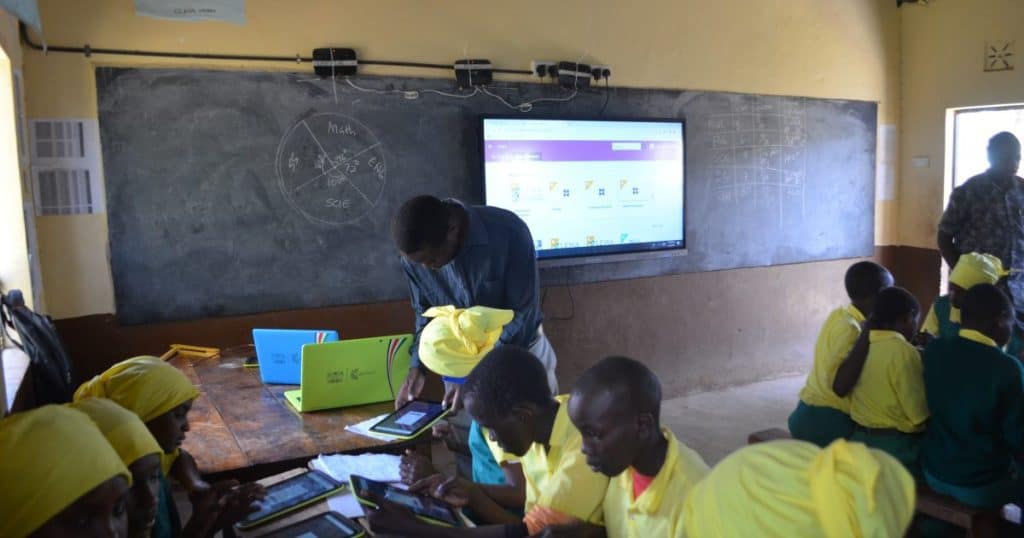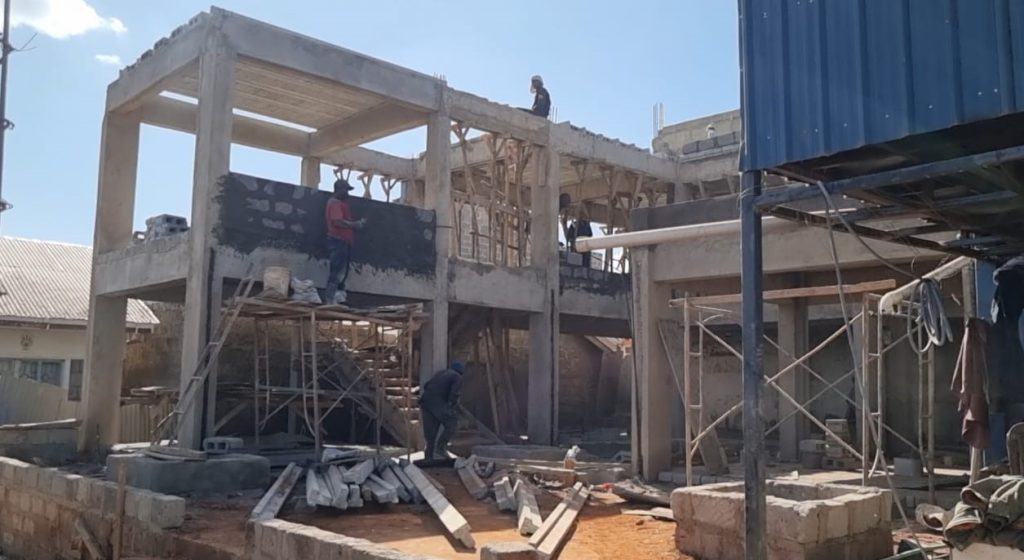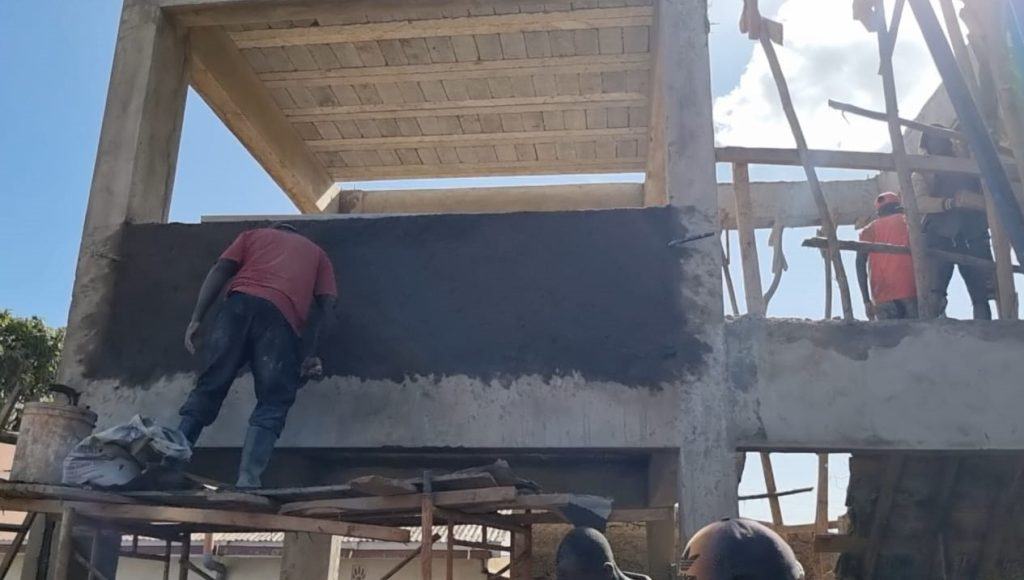The implementation of CBC infrastructure was aimed to construct over 10,000 additional classrooms providing an opportunity for local contractors in the country to benefit.
Unlike the 8-4-4 system, CBC does not rely on the notion that intelligence is based only on IQ testing as the standard single intelligence measure for humans. CBC focuses more on acquiring competencies and less on content. It is where learning is based on the needs and potential of individual learners under a flexible framework and parameters that move and shift according to the learners’ demands.The curriculum was introduced to Kenyan schools in 2017 as a pilot with the eventual adoption in January 2019. The introduction of the new system was due to the challenges experienced by the previous system 844 curriculum.
The 8-4-4 Curriculum
In the year 1985, Kenya’s former President Daniel Arap Moi established the 8-4-4 system of education. This system replaced the 7-4-2-3 system and it is made up of 8 years of primary education (classes 1–8), 4 years of secondary education (form1-4), and 4 years of university education. This system however had not been updated since inception and the quality of learners produced after completing school proved difficult to compete on international standards.
Challenges faced by 844 Curriculum.
One of the main problems with the 8-4-4 system was its emphasis on academic grades over practical skills. The system placed a heavy emphasis on theoretical learning and memorization, with little emphasis on practical skills development. This resulted in a workforce with limited practical skills and a mismatch between the skills required by the job market and those possessed by graduates.
Additionally, the 8-4-4 system was criticized for its rigid and inflexible structure. It did not allow for individualized learning and career paths. The system also placed a heavy burden on students. A large amount of coursework and exams leads to high levels of stress and anxiety.
Finally, the 8-4-4 system was also criticized for its lack of inclusivity, with students from disadvantaged backgrounds often unable to access quality education due to financial and logistical barriers. This resulted in many students dropping out of school, particularly at the secondary level.
As a result of these issues, the Kenyan government began implementing a new system of education, the Competency-Based Curriculum (CBC), in 2019 aiming to address some of the shortcomings of the 8-4-4 system.
CBC implementation

When Kenya initiated the implementation of the Competency-Based Curriculum (CBC) in 2017, it was clear many changes were expected in teaching, learning, assessment of learners, and construction of additional classrooms. In what is a major departure from the rote memorisation of the content of the 8-4-4 system, CBC aims at instilling core values and practical skills and competencies to ensure every learner seamlessly transitions from the school to the work environment.
Being a learner-centred curriculum means each learner is treated as an individual rather than just another one of the many learners in a class. However, with the current infrastructural and staffing inadequacies, it is impractical for a teacher to adequately guide each learner to achieve maximum potential at their own pace.
This implementation puts more focus on improving infrastructure and employment of enough teachers to ensure that by the end of every learning cycle, each learner gets maximum attention and guidance to hone most, if not all core competencies. Without enough classrooms and teacher-learner interaction, many talented learners are likely to be lost in the crowd, much like in the now almost defunct 8-4-4. One of the core competencies of the CBC is digital literacy. CBC aims at equipping learners with skills to enable them to access and create digital information.
Infrastructure implementation
CBC infrastructure was brought to ensure a smooth transition, the system needed more classrooms, which is why the CBC infrastructure project was developed. The government directed that only local contractors would be allowed to win the tenders for the construction of classrooms in order to ensure that the community benefited from the change.
According to the directions for the program, the cost of constructing a single classroom would be set at Sh788,000 in all counties. Committees from the county and sub-county were tasked with keeping an eye on the development of the schools’ infrastructure.
The Kenyan government has already spent Sh3.3 billion on CBC classroom infrastructure projects throughout different regions in the country. Education Cabinet Secretary (CS) Prof. George Magoha announced that a total of 10,000 Competency-Based Curriculum (CBC) Classrooms in Kenya, will be constructed before the end of 2022 for occupation by Junior Secondary Schools learners come January 2023.
Ecoconcrete is part of making this a reality by building a classroom a day using beam and block floor/roof slabs. Fast easy and efficient, installing 100 square metres a day. We have constructed several classrooms across the country using the beam and block slab technology, and with the advantages the system offers, many contractors have gravitated towards the precast solution. These advantages include.
Advantages of beam and block
- Savings of up to 20% of the overall slab cost
- Quick and easy installation
- No special skills or tradesmen are required
- Immediate working platform
- Durable (high-quality factory-manufactured precast concrete products)
- Can be constructed in all weathers
- Designed to resist rot
- Fire resistance
- Service pipes are easy to lay
- Clear spans up to 6m
Classrooms under construction using beam and block
Ecoconcrete has aided the Government of Kenya to deliver durable and cost-effective CBC classrooms in a timely manner ensuring the learner’s calendar was not compromised in any way.


Conclusion
The adoption of Competency-Based Curriculum (CBC) brings new trends to the leverage of African education with the rest of the world. CBC’s emphasis is on the attainment of competencies among the graduates, which is fundamental to employability in the job market in a highly competitive world.

